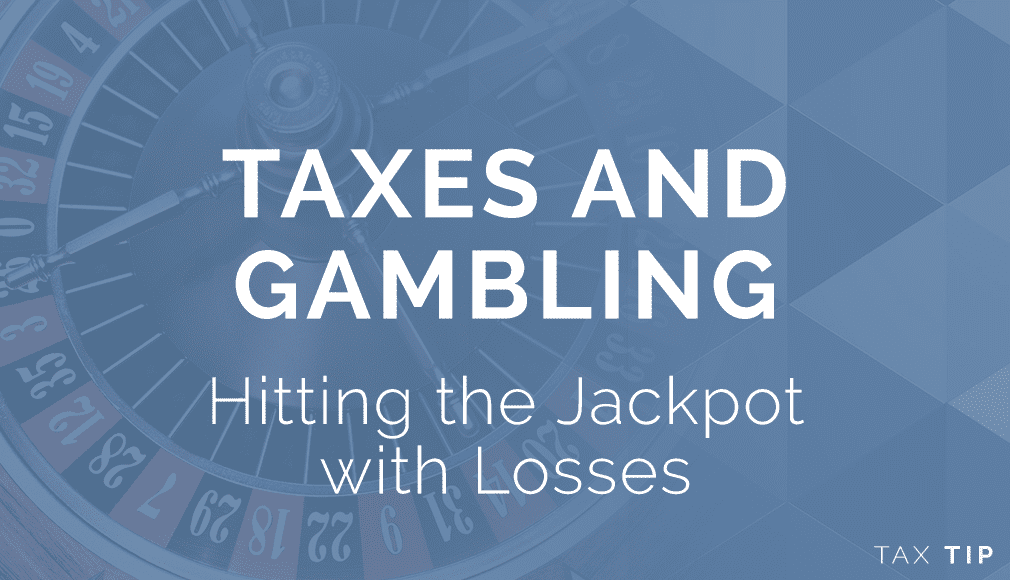

Gambling may not be for everyone but many people occasionally place wagers at the track, indulge in games of chance, or enjoy a night on the casino floor in nearby Atlantic City. You may be one of them.
If you’re lucky enough to hit a jackpot, or even if you have relatively modest winnings, the IRS expects you to report those amounts as taxable income. On the other hand, you can reduce the tax on those winnings with deductible losses from your other gambling activities. Perhaps one of the best benefits of this tax deduction is that it can be claimed without meeting the usual tax law requirements for similar miscellaneous expenses.
The winning thresholds that require reporting vary by gambling activity, but generally, if you receive $600 or more from gambling activities during the year, you must report the income on your annual tax return. This includes winnings from trips to the casino and racetrack and even the bingo games at your local house of worship. It doesn’t matter if the money goes to a private business or a charity.
“You may receive a Form W-2G in certain instances, such as if you win $1,200 or more from a casino slot machine,” advises Associate Partner Mike Engleman, CPA. “Be sure to check your state law regarding gambling winnings. New Jersey also permits you to offset gambling losses up to the amount of your winnings.”
Fortunately, in most instances, you can offset the tax by claiming gambling losses, up to the amount of your winnings. But you can’t claim any loss for the excess. You are strictly limited by this rule.
Now here’s the kicker: Normally, you can deduct only miscellaneous expenses above 2 percent of your adjusted gross income (AGI). But this doesn’t apply to gambling losses. Therefore, your losses are fully deductible down to the penny.
However, it depends on your deductions. “Gambling losses can only be deducted on the Schedule A – Itemized Deductions,” points out Manager Chris Cicalese, CPA, MSTFP. “If you are unable to itemize and are taking the standard deduction you will not be able to offset gambling winnings with losses.”
It’s important to keep track of your losses through detailed records. For instance, if you bet at the track, log your wagers for each race and supplement it with documentation like losing ticket stubs. Similarly, if you’re playing blackjack at a casino, list the amounts won and lost at each table. Bingo players should record the number of games played, the cost of cards, and amounts collected on winning cards. If your activities rise to the level of being a “professional” gambler, you can deduct all of your losses, even if they exceed your winnings.
Give our Hammonton or Cherry Hill office a call if you have questions about your situation.
© MC 2017 | “Tax Tips” are published weekly to provide current tax information, tax-cutting suggestions, and tax reminders. The tax information contained in this site is of a general nature and should not be acted upon in your specific situation without further details and/or professional assistance.
Empowering business owners and individuals in South Jersey and Philadelphia to feel confident through proactive accounting and advisory solutions.